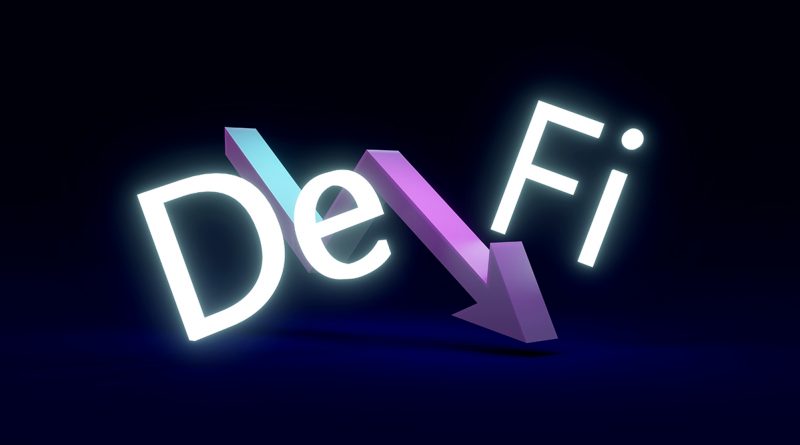Wonderland and DeFi’s Issue of Anonymity
DeFi (and the Canadian crypto community in particular) awoke to a bad headline earlier this year. We got to know that ‘Sifu” was none other than Michael Patryn/Omar Dhanani. “Sifu” (@OxSifu) is a key member and chief financial officer of the decentralized finance platform Wonderland. On the other hand, Patryn was an apparent co-founder of the collapsed, infamous (to put it mildly) Canadian exchange QuadrigaCX. And now both are the same person.
This finding was shocking. In 2010, Joseph Weinberg was a young upstart in Canadian crypto circles. So, he was exposed to Patryn. It was an encounter he even commented on in a Vanity Fair investigative piece in 2019. Following the recent revelation that an anonymous team member of a leading DeFi protocol had been revealed to be a career criminal, he’s been thinking a lot about anonymity. Moreover, concepts like reputation and trust in DeFi have also triggered him to think a lot.
Who is Joseph Weinberg?
In 2010, Joseph Weinberg was an early Bitcoin investor. Also, he was the director at Coinsetter, which Kraken later acquired in 2016. Weinberg is currently the co-founder of Shyft Network. It’s a blockchain-based trust network dedicated to reclaiming trust, reputation, and identity. Even CoinDesk’s Privacy Week series have featured his story.
As someone present during the early years of Canadian crypto, his statement can assure us that we were truly operating in the unknown. Actors emerged in that environment who our space today would not tolerate. He says, for personal security considerations, he wouldn’t discuss or divulge more about Michael/Omar. However, the point is that we must demand a moral compass. Moreover, we should work for the good of our planet and humanity.
Is complete anonymity possible in a world where bad actors exist? Or is it true that when we de-anonymize founders, DeFi adoption suffers? How can we move ahead when events like Wonderland remind us of the things we’ve been fighting to change since 2013? All these are questions we need to ponder. Below, we’ll also try to provide some answers – as well as a path forward for enhancing DeFi trust.
The dangers of anonymity in DeFi
We’ll not argue against anonymity in DeFi. Instead, we’ll be discussing how pseudo-anonymity and reputation can protect users’ cash from terrible actors like Patryn. Quadriga was a centralized exchange with sole ownership. Meanwhile, Wonderland’s treasury was still in the hands of core key signers. This created a condition of pseudo-custody with danger. Moreover, smart contracts may be self-executing. However, the people in charge of the funds are autonomous.
It’s at this point that human intervention becomes a problem. The community believes that people who come into contact with their money will act responsibly. It works for the most part. Until it doesn’t. Would you invest in a project with SushiSwap’s Chef Nomi, the controversial co-founder who abruptly liquidated his assets and caused the token to crash?
How is anonymity in DeFi harmful?
Anonymous teams do not conduct background checks, credit checks, and other security checks. These ensure that people do not have criminal records or are on sanctioned watch lists. You know that with tremendous power comes great responsibility. So, as DeFi grows and the ecosystem pursues institutional acceptance, it’ll make a broader group of market participants.
Individuals don’t matter as much in Bitcoin and Ethereum. It is because automatic rule enforcement is based on consensus. Also, they don’t have the added ability to do something wrong.
Therefore, it’s no surprise that the Financial Action Task Force (FATF) recently issued recommendations emphasizing DeFi. Key signers are in charge of funds, according to the FATF. It makes them regulated companies. However, decentralized autonomous organizations (DAO) can (and will) be classified as virtual asset service providers (VASPs) to some extent in the coming years.
This guidance was purposefully kept open-ended. Moreover, the board was kept in order for regulators to decide how they want to tackle these issues. Growing regulation would raise many red flags. Also, it’ll contaminate asset pools and institutional confidence if we allow bad actors to hold power in DeFi systems anonymously.
The value of a well-established reputation
We need to think about some of these concerns about social reputation and trust as a group. People are hesitant to give away their identities. After all, we are fighting for freedom and openness. Instead, we place our trust in others. That’s exactly what happened to Patryn. We allowed recent activities to overshadow our broader reputation. This is a breach of trust and a breach of our industry’s social obligation.
Pseudo-anonymity would replace total anonymity based on the power and utility of attestations. This is the future he says he’d want to envision for DeFi, and the road to mainstream adoption of Institutional DeFi.
Pseudo-anonymity is the concept of sharing portions of oneself. Meanwhile, it will only partially disclose crucial information to others. Without knowing someone’s name, and providing protected personal information (PPI), we can attest to their background record on-chain. We can “blindly” figure out who people are and what they’ve done. Then provide the information to those who know them. And this all will be without revealing their identities.
Alternatives and trade-offs
Cryptocurrencies aren’t forgiving. The only thing we have in a trustless ecosystem is the trust we build and the integrity we preserve. To improve trust in anonymity, we need to integrate systems. However, the irony of trustless systems is that we need trust in the layers above code-enforced execution. So, if DeFi is to continue to flourish, we must take a step back. Then we have to consider how we might enable it to communicate with anonymous systems and people.
The potential of DeFi is wide open. However, the genuine endgame is a significantly different reality from what we currently have. What some find wonderful about DeFi is that it is already leading to severe breaches in the banking system’s basic risk requirements. These can include anti-money laundering, data coordination, and reconciliation. Moreover, it contains the layered preference de-anonymity (pseudo-anonymity).
What are the solutions?
“Anonymous-everything” is the polar antithesis of what freedom is all about. And it is all about choice and compromise. These solutions allow us to begin anonymously. Then enables us to make trade-offs to optimize or improve the functionality of other services (i.e., centralized exchanges). Bitcoin and other networks, like Ethereum, were not designed from the ground up to be anonymous platforms. They provide us with censorship-proof transparency.
Joseph says he dreams of a future in which we are completely anonymous. Moreover, everything will be “privacy by design.” However, until then, we are dealing with reality as a mix of the world we’ve known and the one we’re creating.
The crypto space was created to provide all of us with greater freedom of choice. Additionally, it was supposed to provide us with a new paradigm for constructing options and levels of freedom. Those liberties should be ours to choose. Moreover, every user in our ecosystem makes trade-off judgments daily.
To fully walk that walk, we must first comprehend what other people desire in their toolbox of options. For example, institutions want to know who they’re doing business with. On the other hand, governments want to make sure that we’re not laundering money or funding terrorists. Similarly, supporters of a DeFi project want to know that it isn’t linked to someone who has a history of acting unfairly. Quadriga has harmed people and early crypto people like Joseph understood not to retain funds there because of what we knew.
Conclusion
We should no longer use insider information and shadow games to keep people safe from bad actors in DeFi and crypto. Regulators are reacting to people’s behavior today. And it is an example of next-generation innovation and the future you’re creating. Right now, we’re all in the spotlight. We’ve gone a long way since the Wild Wild West’s early days. Moreover, the acts we take now, history books will keep records of it forever. And future institutions will govern by rules we enacted in response to our efforts.
So, let’s not travel back in time.




